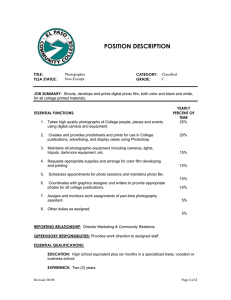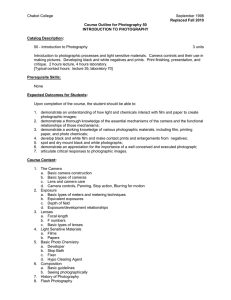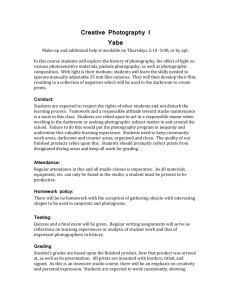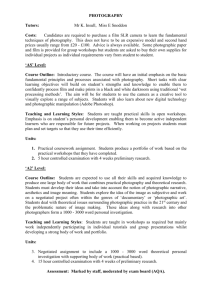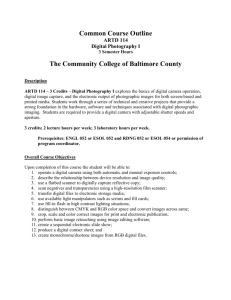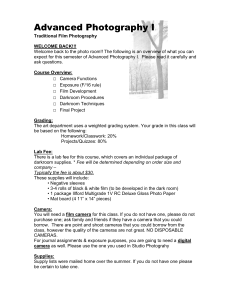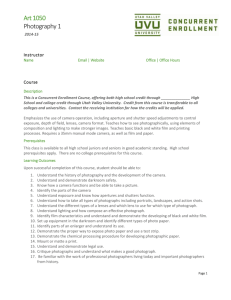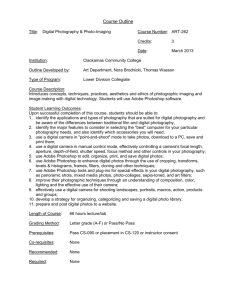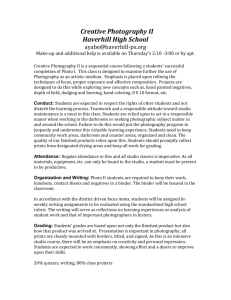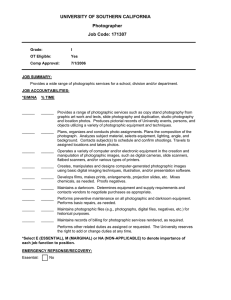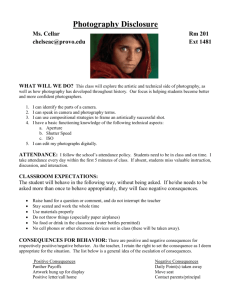Second Semester Course Outline
advertisement
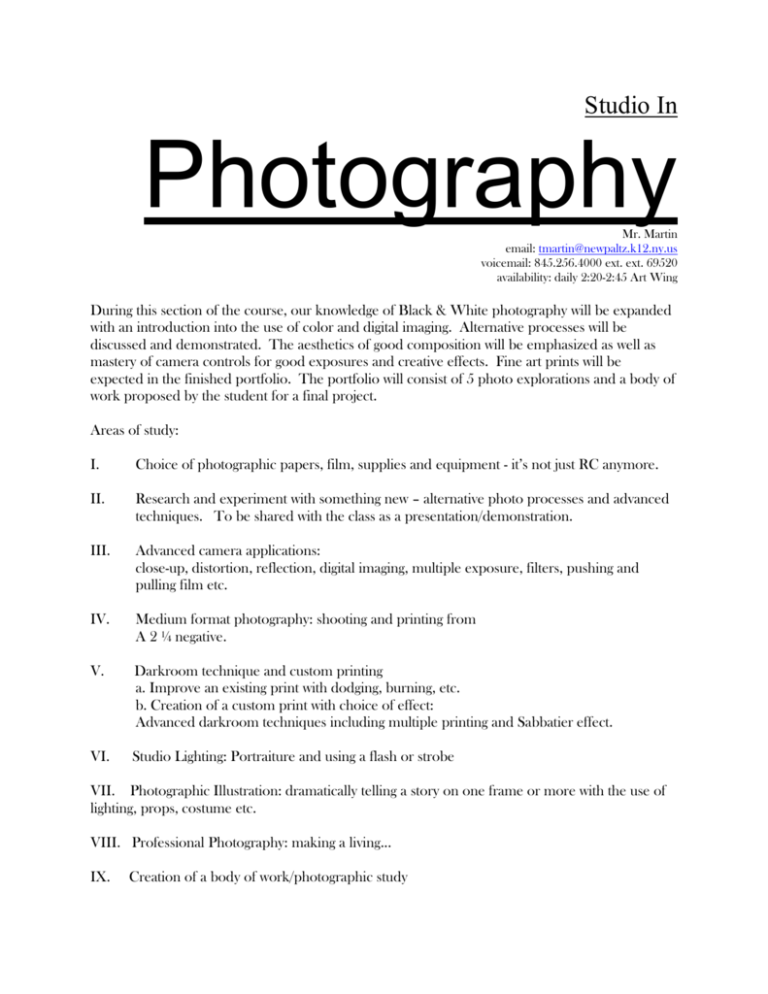
Studio In Photography Mr. Martin email: tmartin@newpaltz.k12.ny.us voicemail: 845.256.4000 ext. ext. 69520 availability: daily 2:20-2:45 Art Wing During this section of the course, our knowledge of Black & White photography will be expanded with an introduction into the use of color and digital imaging. Alternative processes will be discussed and demonstrated. The aesthetics of good composition will be emphasized as well as mastery of camera controls for good exposures and creative effects. Fine art prints will be expected in the finished portfolio. The portfolio will consist of 5 photo explorations and a body of work proposed by the student for a final project. Areas of study: I. Choice of photographic papers, film, supplies and equipment - it’s not just RC anymore. II. Research and experiment with something new – alternative photo processes and advanced techniques. To be shared with the class as a presentation/demonstration. III. Advanced camera applications: close-up, distortion, reflection, digital imaging, multiple exposure, filters, pushing and pulling film etc. IV. Medium format photography: shooting and printing from A 2 ¼ negative. V. Darkroom technique and custom printing a. Improve an existing print with dodging, burning, etc. b. Creation of a custom print with choice of effect: Advanced darkroom techniques including multiple printing and Sabbatier effect. VI. Studio Lighting: Portraiture and using a flash or strobe VII. Photographic Illustration: dramatically telling a story on one frame or more with the use of lighting, props, costume etc. VIII. Professional Photography: making a living... IX. Creation of a body of work/photographic study A portfolio will be produced, collected and exhibited. Possible photo exploration techniques and topics: 1.Close up photography – using close-up filters or a macro lens. 2.Reflections – light that is third, fourth or fifth generation 3.Shadows – a hole created in a beam of light 4.Skies – using filters to boost mother nature’s drama Yellow – can darken, penetrate haze Red - penetrates haze, greater detail in red flowers, darkens a blue sky Green – makes flowers and foliage more natural 5. Scenic – making a 3 dimensional scene appear 3 dimensional in a two dimensional medium 6. Hands – express character, age, personality, history, contrast 7. Mood – photography as a vehicle for expressing perceptions and feelings 8. Doors – what is the purpose of a door? 9. Queues – why do they stand in line? 10. Camera angle – point of view, expanding your vision of a subject 11. Distortion – find distortions on metal, glass, plastic, spheres… Can be a darkroom effect. 12. Diffusion/textures – using screens, Vaseline, plastic, filters 13. Double Exposure – multiple, planned exposures on a negative. 14. Steps in a process – recording events as they happen. 15. Reticulation – thermal shock or photo anarchy 16. Composite photo – collage, montage, photographic illustration, interpreting a theme. 17. Sabattier – solarization, exposing to light purposefully 18. Infrared – record what the eye does not see 19. Liquid emulsion – making your own light sensitive surface 20. Research other special effects, techniques, processes and try them out!
